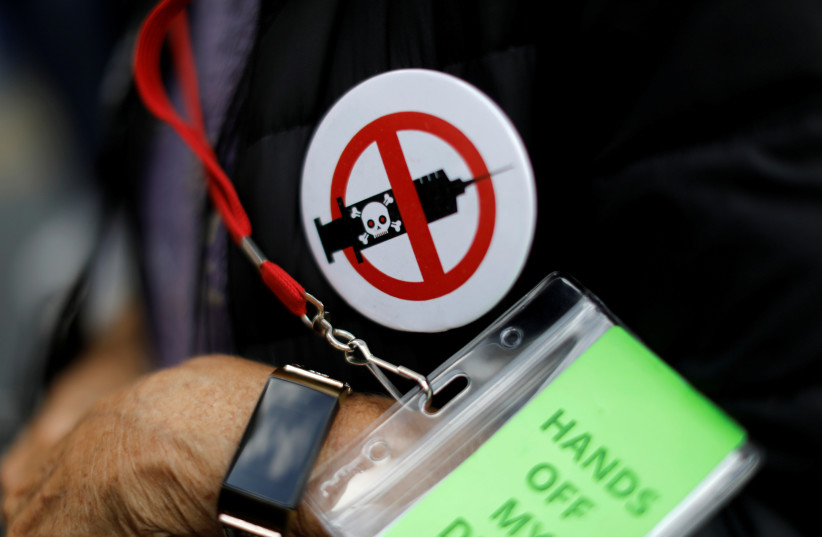A lawmaker from the United Kingdom’s Conservative Party apologized for evoking Nazi Germany while criticizing restrictive measures meant to stop the spread of the COVID-19 pandemic.
Marcus Fysh, a former business executive who entered parliament in 2015 as a representative of the Yeovil constituency in western Britain, made the apology in an op-ed published Monday in the Jewish Chronicle.
“I am sorry that during a debate about the current Covid impositions being proposed I put forward my argument about what right a majority of people might have — in my view in a state of fear — to limit the fundamental rights of others, by saying that we are not Nazi Germany,” Fysh wrote.
Earlier this week, Fysh said on Radio 5 that he opposed the concept of a COVID passport – a document proving its carrier is vaccinated against COVID-19 – because “We are not a ‘papers please society.’ This is not Nazi Germany.”

Fysh’s remark was one of many references to Nazism and the Holocaust by some critics of COVID-19 measures in Britain and beyond. Few of the people criticized for making the allusion have apologized.
It was “a mistake for me to say this without being able to ensure full context and explanation, allowing my comment to be presented differently to what I meant and be hurtful to people,” said Fysh, who was born in Australia.
